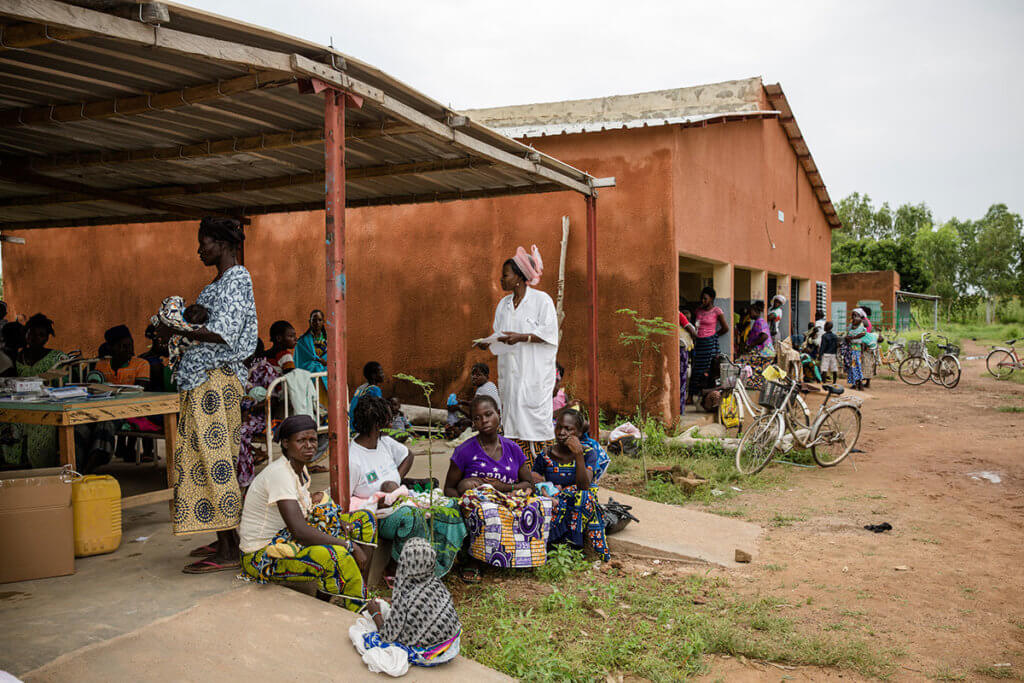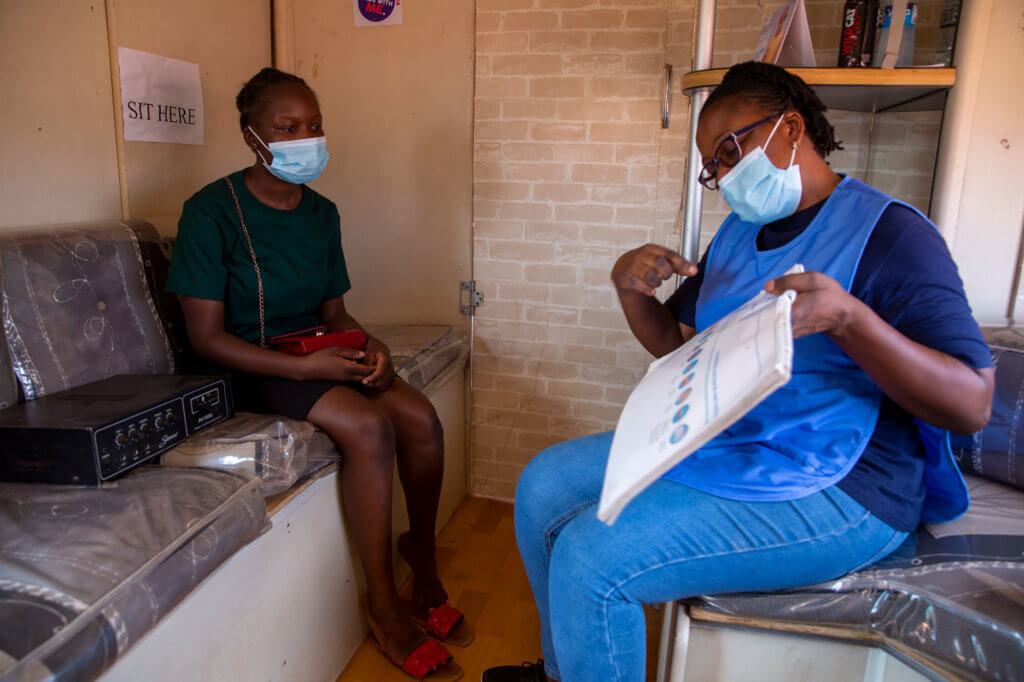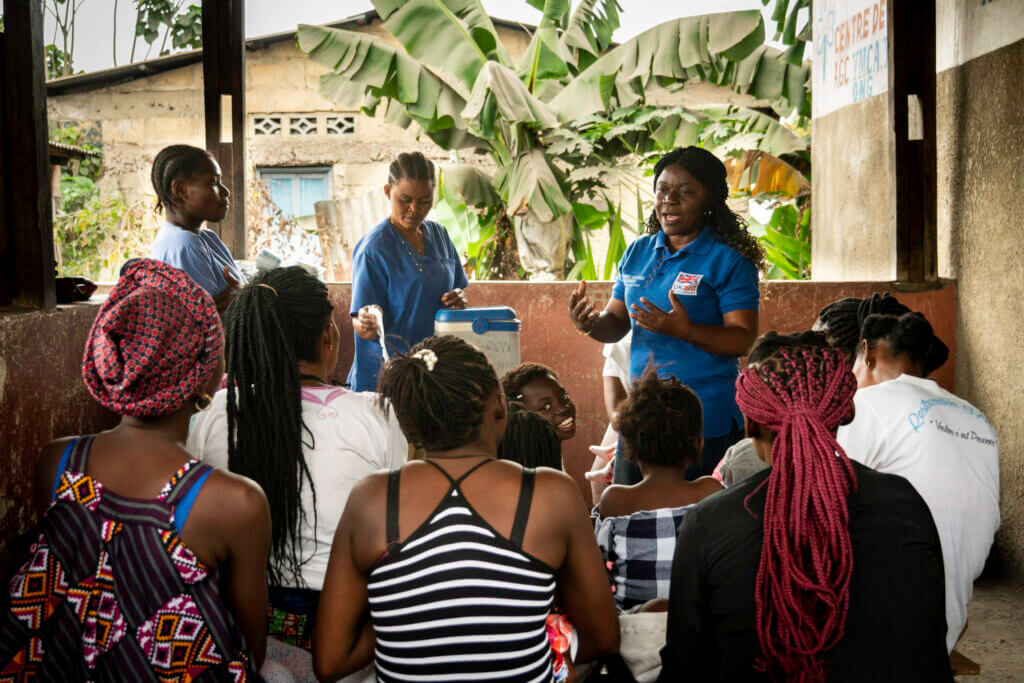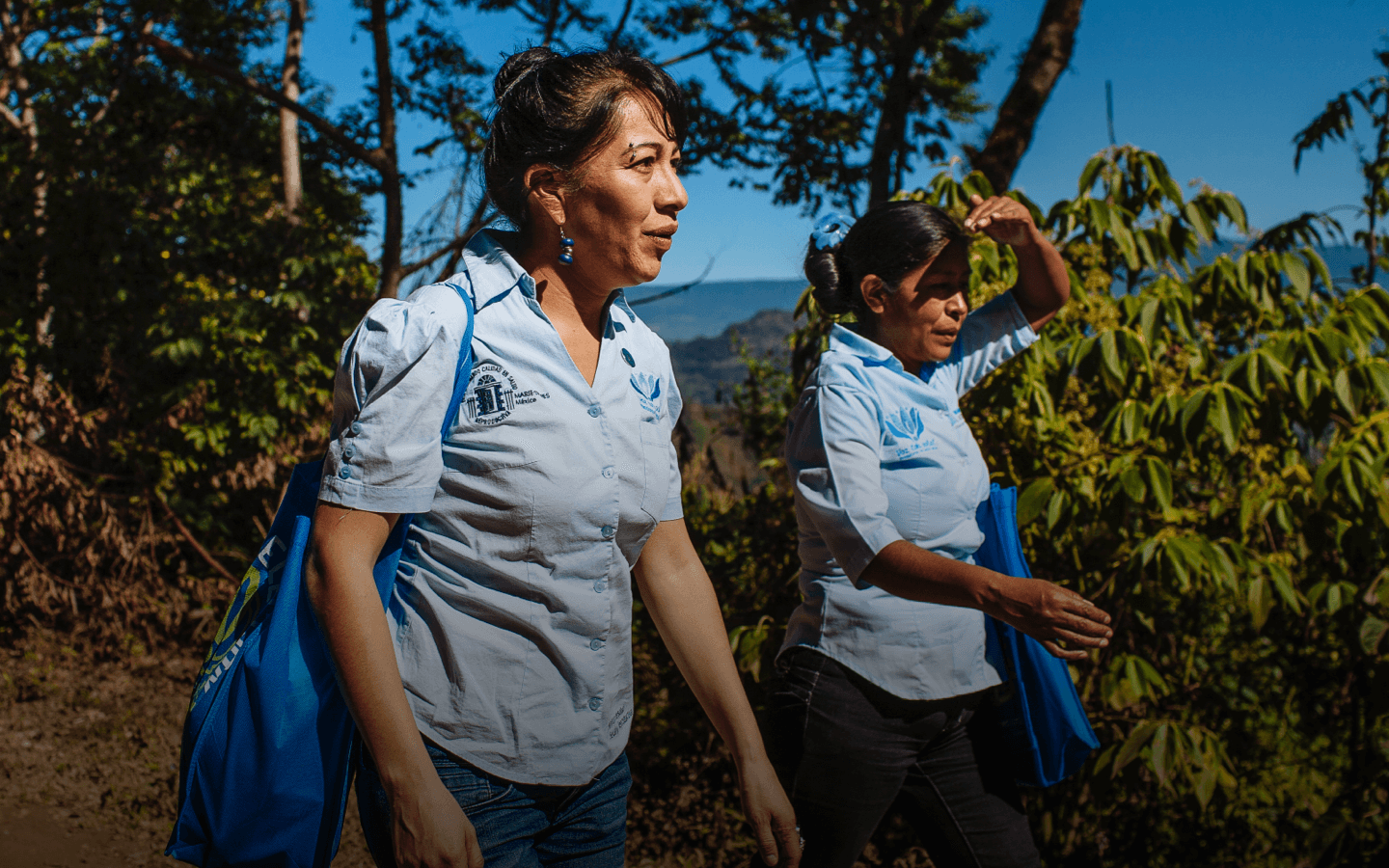World Health Day 2022: Leave no one behind
Access to reproductive choice can be life-changing. Choice keeps girls in school, supports women to work outside the home, and saves lives by preventing unsafe abortions and maternal deaths. But on World Health Day, we recognize that choice and the opportunities that it brings remain out of reach for far too many.
For remote communities and those in settings affected by conflict or climate change, access to reproductive choice can be limited or non-existent. Meanwhile, marginalized communities, such as LGBTQI people and people living with disabilities, continue to face intersecting barriers to care.
We’re committed to ensuring that no one is left behind. Today, as we celebrate World Health Day, we’re sharing what it will take to get there.
1. We need to level the playing field for rural and underserved women
MSI’s analysis of global Demographic Health and Surveys data found that across sub-Saharan Africa, the poorest fifth of women are twice as likely to face an unmet demand for contraception as the wealthiest fifth. This inequality costs lives. In Nigeria, for example, the poorest fifth of women are 80% more likely to die from pregnancy-related causes.
Most of these women live in rural regions, underserved by traditional health systems. Through interviews, we know that about 60% of MSI’s rural outreach clients had no alternative access to their chosen contraception. But MSI data also shows that access can be delivered to these communities affordably, at scale. On average, our outreach teams can provide the contraception that protects a girl or young woman from an unintended pregnancy for just $8 a year. To drive down inequality in reproductive healthcare, we need to rapidly scale up access to underserved communities.
Read our Leave No One Behind report >>

2. When it comes to reproductive healthcare, we need to be inclusive by design
We have learned that clients from marginalized communities, including adolescents and clients living with disabilities, value additional information and space to ask questions during counselling.
To design programs that offer this tailored support, we need to put marginalized voices at the center of our planning. From partnering with disability inclusion specialists in Sierra Leone, to working with sex workers in Bangladesh to dismantle barriers to access, we’ve seen that by listening to marginalized communities, we can deliver truly inclusive programs.
3. For a fairer future, adolescent access remains key
Barriers to reproductive healthcare continue to hold young women and girls back, costing lives. Adolescents in low and middle-income countries are nearly twice as likely to face an unmet demand for contraception. Our analysis of Demographic Health and Survey data from Niger found that only 1 out of 100 girls there will finish secondary school—but half will give birth before their 18th birthday. If we can prevent unintended pregnancy, we can keep more girls in school.
In 2017, MSI launched a tailored adolescent strategy, which has expanded access to reproductive healthcare for over 4 million young people. We must maintain this laser focus on delivering adolescent-friendly healthcare, so that young people have the reproductive choice to remain in school and determine their own futures.
Learn more about how choice helps girls stay in school >>

4. The landscape is changing for women and girls and we need to adapt fast
From COVID-19 to the climate crisis, we know that when crises occur, access to reproductive choice is is reduced as the risk of sexual violence and need for reproductive healthcare rises.
Of the 26 million people estimated to have been displaced by the climate crisis, 80% are women. By guarding against unintended pregnancies, reproductive choice can help women and their families to adapt when facing potential upheaval and depleting resources.
Learn more about how contraception builds climate resilience >>
5. For sustainable access, we need to strengthen public sector provision
In low and middle-income countries, it is estimated that 37-39% of contraceptive services are provided by the private sector. To ensure sustainable access to quality healthcare, we need to strengthen public sector provision of reproductive healthcare too.
Since 2012, MSI has worked with national governments to train over 10,000 government healthcare providers across 5,500 public facilities, reaching over 12.6 million clients. In our Leave No One Behind report we showed how we will take this partnership further, laying out our pathway to nationally led reproductive healthcare, by upskilling providers and creating an enabling policy environment.

6. For lasting impact, we need to change the rules
Reproductive healthcare continues to be over-medicalized and over-regulated, particularly for marginalized communities. To change this, we have partnered with governments and civil society organizations to support dozens of policy, law, regulation and financing changes.
At a community level, we have partnered to shift social norms and drive community support for reproductive healthcare and rights, from facilitating joint decision making between couples in Burkina Faso, to using role play to engage community leaders in Zambia.
But unnecessary restrictions are still in place. Over the next 10 years, we will continue to work with governments and communities to remove barriers, so that every individual can access reproductive choice.
Learn about our 2021 advocacy wins >>
Everyone, regardless of geography or economic status, should be able to access reproductive healthcare and determine her own future. The progress we’ve made towards reproductive choice for all hangs in the balance—but together, we can protect it. We hope you will join us in making reproductive choice a reality for all by 2030. With the expertise and connections of partners, can we ensure that no one is left behind.






